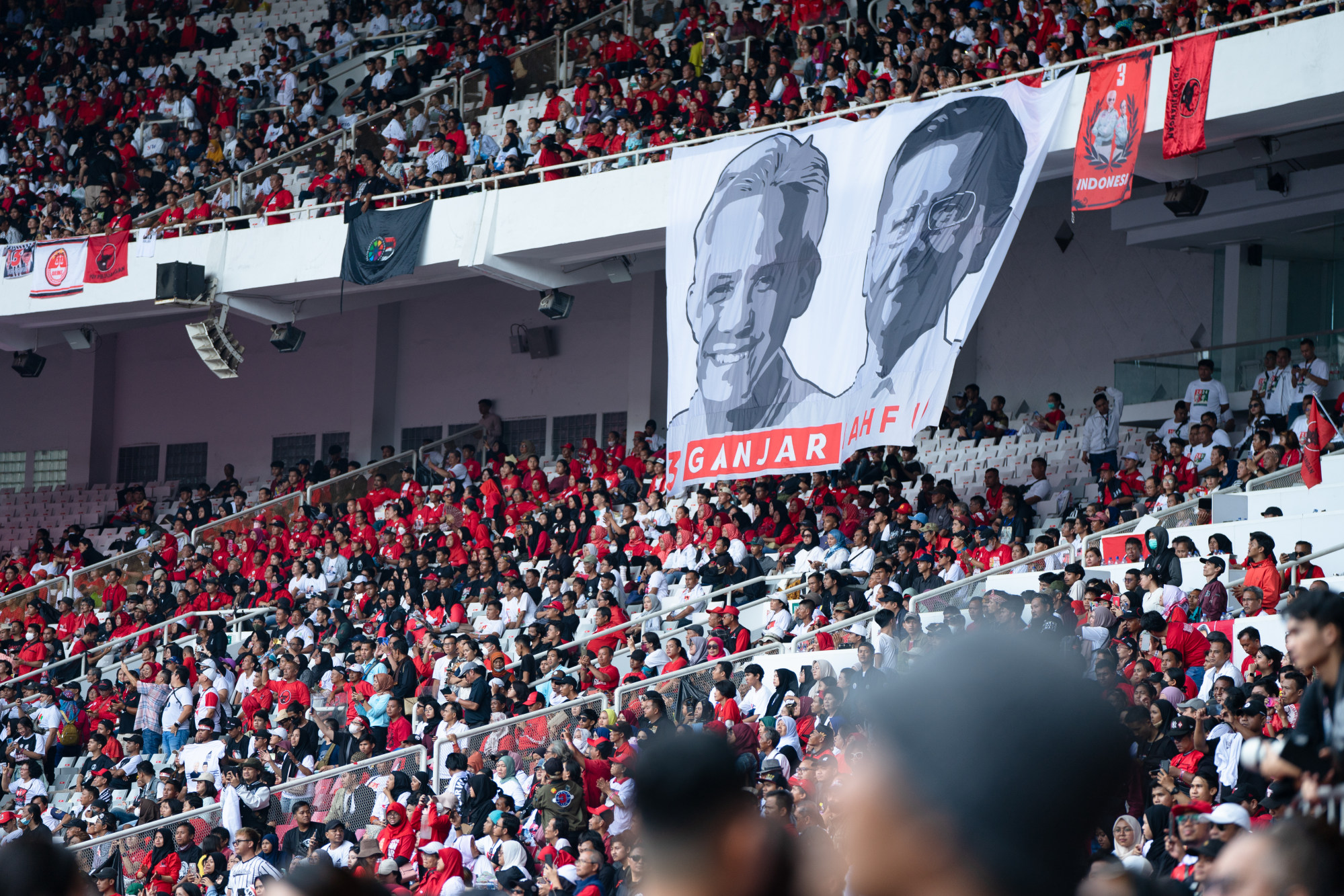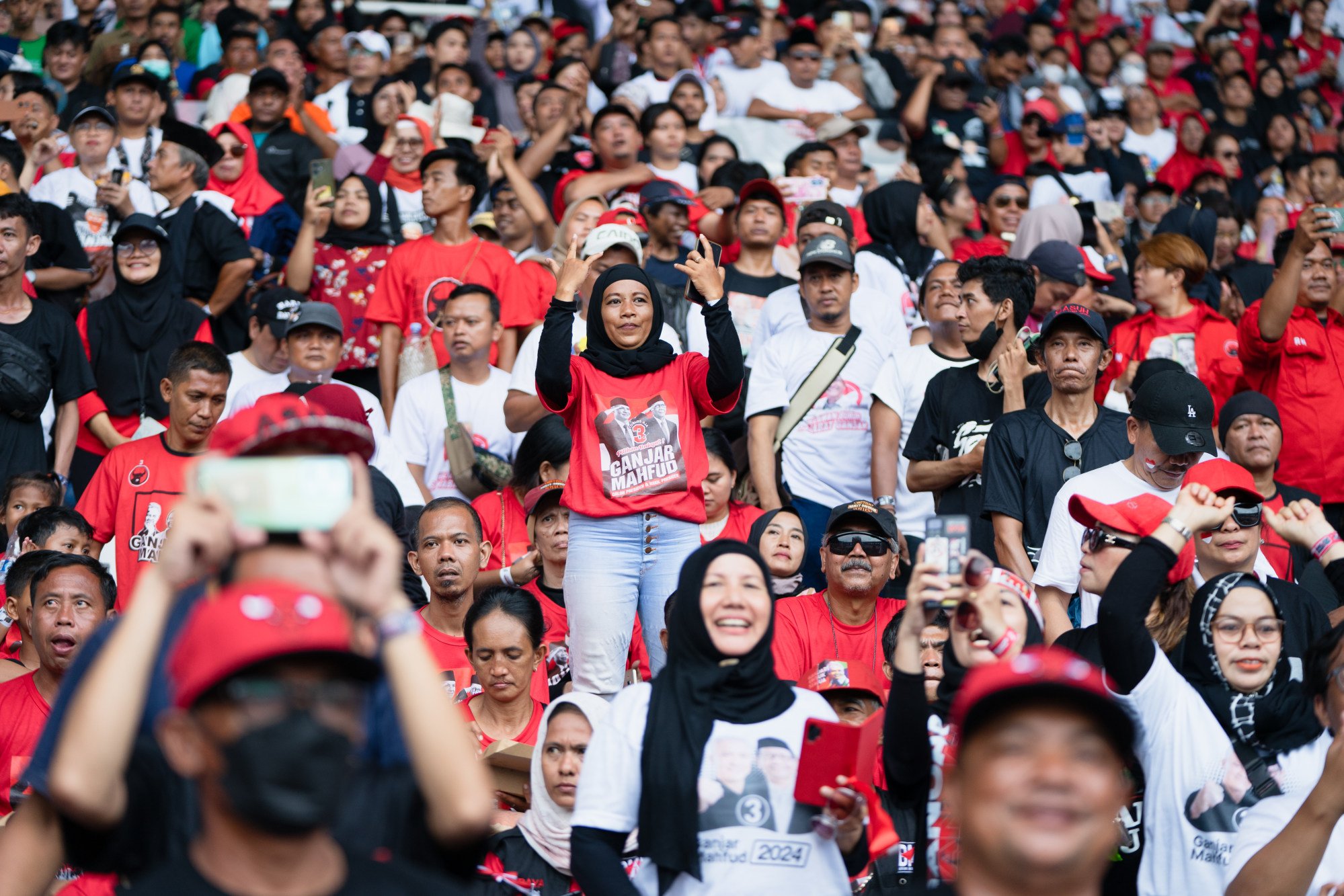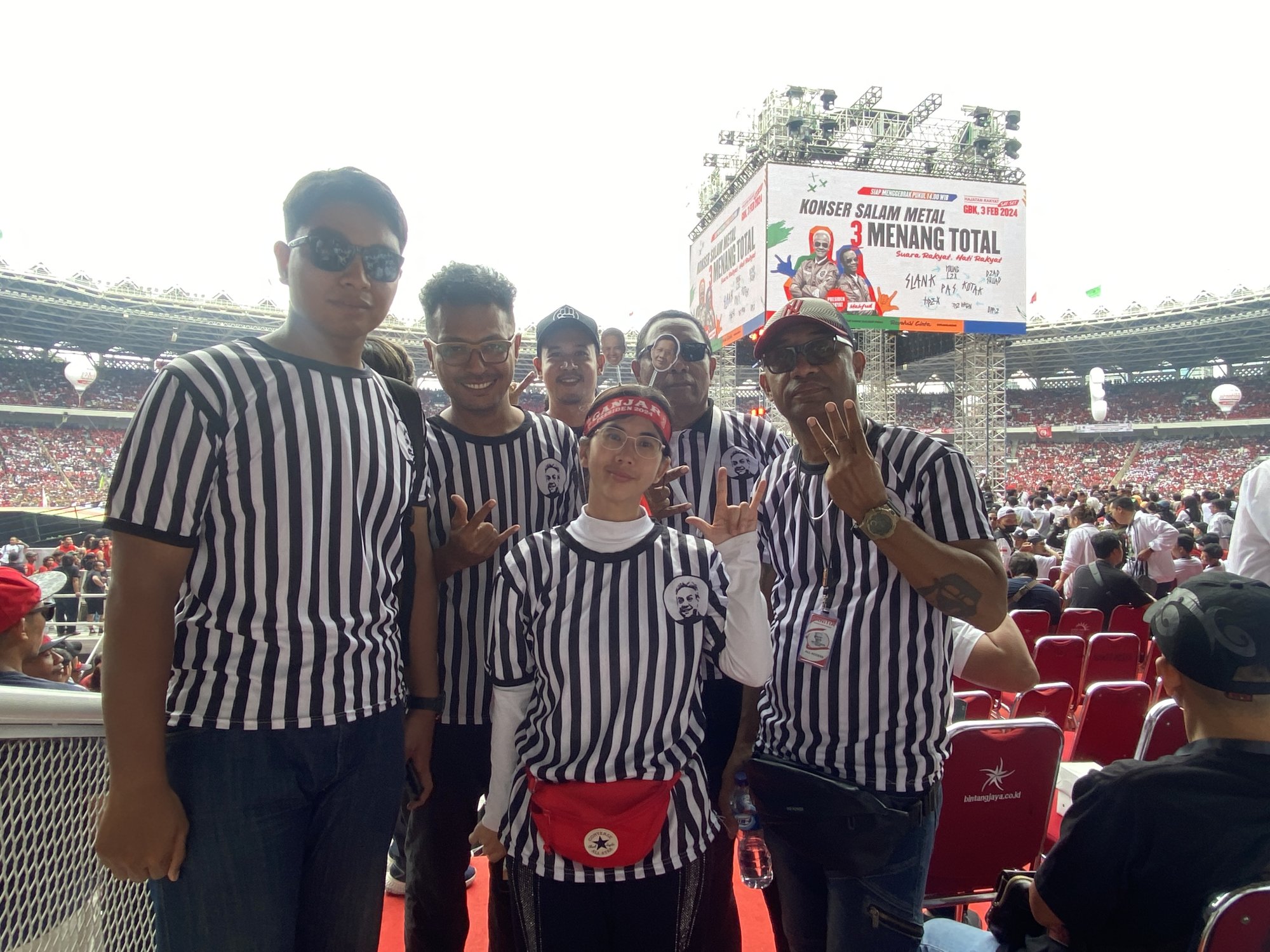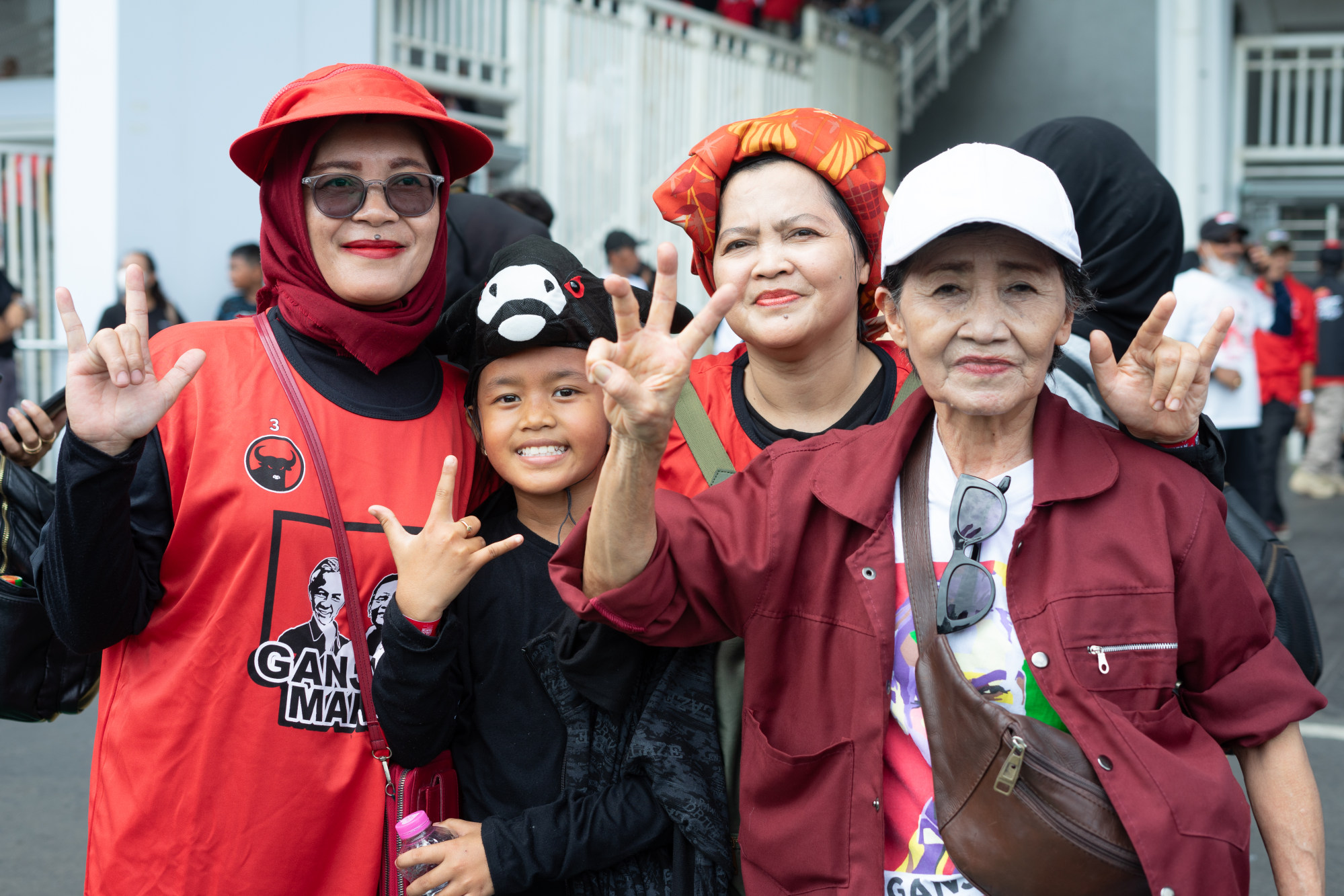
Indonesia election 2024: can Ganjar Pranowo force a run-off as bid for ‘total victory’ dries up?
- With days to go before the February 14 polls, a clear win for the ruling party’s presidential pick appears all but impossible, even as supporters hold out hope
- His best chance to contend with Defence Minister Prabowo Subianto and ex-Jakarta governor Anies Baswedan is by forcing the election to a second round
Tall, urbane and articulate, the former Central Java governor did not start out that way. He soared in the surveys soon after grabbing the sought-after prize of being named the presidential nominee from the country’s ruling Indonesian Democratic Party of Struggle (PDI-P).

Indonesia election: is Jokowi’s ‘partiality’ for Prabowo a double-edged sword?
Ganjar’s fortunes have turned. He has less than two weeks to fight to stay in the game after having sunk to the bottom of recent opinion polls.
A presidential candidate needs a simple majority of more than 50 per cent to win on February 14. If not, there will be a run-off election on June 26 between the top two candidates with the highest number of votes.
The most recent polls have put Prabowo ahead, with around 45-50 per cent of the vote, and Anies at second place with between 21 per cent and 23 per cent, while Ganjar has trailed behind, hovering around 20 per cent.

Tumble and fall
Ganjar was named by Megawati as the PDI-P’s presidential candidate last April.
A few months later, it seemed he was also going to receive the president’s backing when Widodo said he thought Ganjar was suited to be the country’s future leader.
But no official presidential endorsement ever came.
‘Power does not last’, Indonesia’s ex-leader Megawati says in jab at Jokowi
This played out poorly in football-crazy Indonesia. Ganjar’s popularity dipped in polls almost immediately, and he was overtaken by Prabowo. And analysts say he has failed to pick up the momentum since then.
“His performance in the presidential debates has not been very impressive,” said Arya Fernandes, head of the politics department at the Centre for Strategic and International Studies in Jakarta.
Is Indonesian presidential hopeful Ganjar using K-pop fans as ‘political tool’?
Some voters may not see him as a decisive leader and instead look to him as an extension of party leader Megawati, said Arya, adding “Anies has been able to present himself in a more strong manner”, and that may be part of the reason he has overtaken Ganjar in some of the recent polls.
With less than two weeks until election day, it may not be possible for Ganjar to regain some of the support he has lost. But his best chance might lie in attracting swing voters, as well as pulling away any support he can from his competitors, Arya said.
At Saturday’s rally, Megawati took a jab at a certain presidential candidate who “hasn’t become president but has already intimidated the people, used state money [to win the election]”.
“Is that the right leader? Is that a good leader?” she questioned.
The former president was in all likelihood referring to Prabowo, who has been accused by his critics of using the government’s social aid programme for the poor to boost his voter base ahead of the election.

Hope lives on
Despite the odds, some of Ganjar’s supporters remain hopeful for his victory in the coming election.
Arthur Sitaniapessy, 36, travelled all the way from the province of Maluku to Jakarta to attend the rally.
“I like Ganjar because he is firm. I want a president who can eradicate corruption, reduce poverty [and is] not just all talk. Pak Ganjar and Mahfud’s track record looks really good so far,” he said.
Indonesian band changes tune on Jokowi, backs Ganjar to ‘keep democracy alive’
Devi Ariyani, 19, from Bogor, was one such fan. She was there to support Ganjar, but also to watch the artists perform.
“I like Ganjar because he promises to develop [talents of] young people, and he often holds concerts so it’s fun,” she said. “My hope for Ganjar after he’s elected as a president is that he will continue to stay true to himself, and that [he’ll work] to make Indonesia even more advanced.”

Nurhayati, 52, who came from the city of Bandung a few hours away to attend the rally, said some of Ganjar’s qualities reminded her of Widodo.
“He is a hard worker and he is down to earth. His work is like that of Jokowi,” she said, referring to the leader by his popular nickname.
When asked why she was not supporting Widodo’s son if she liked the popular leader’s work, Nurhayati said she felt confused about where Widodo stood in the election.
“It’s not clear what side he is on, and what his motives are. So I want to vote for Ganjar because I also support the PDI-P,” she said.


